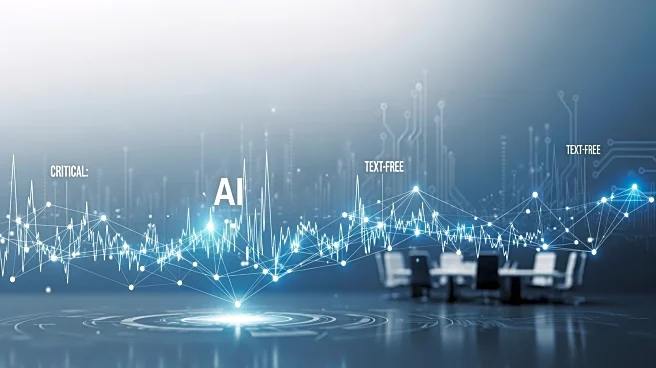What's Happening?
A recent CNBC survey among human resources leaders indicates that artificial intelligence (AI) is set to impact 89% of jobs in the coming year. The survey, conducted with members of the CNBC Workforce
Executive Council, reveals that AI is already affecting a significant portion of tasks within jobs, with many HR leaders noting changes in daily work processes. The survey highlights that AI is reshaping the future of work by redistributing tasks, leading to increased efficiency and innovation. While some organizations have yet to fully integrate AI tools, the majority of HR leaders anticipate substantial impacts on job roles and workforce dynamics in the next 12 months.
Why It's Important?
The anticipated widespread impact of AI on jobs underscores the transformative potential of technology in the workplace. As AI automates routine tasks, it allows employees to focus on more complex and creative aspects of their roles, potentially enhancing productivity and job satisfaction. This shift could lead to a reevaluation of workforce structures and the skills required for future roles. Companies that effectively leverage AI may gain a competitive edge through improved efficiency and innovation. However, the transition also poses challenges, including the need for reskilling and adapting to new technologies, which could affect employment patterns and economic stability.
What's Next?
Organizations are likely to increase investments in AI technologies and training programs to prepare their workforce for the changes ahead. HR leaders may focus on developing strategies to integrate AI seamlessly into existing workflows while addressing potential concerns about job displacement. The survey suggests that while some companies may reduce headcounts due to efficiency gains, others may expand their workforce to capitalize on new opportunities created by AI. Policymakers and industry leaders may engage in discussions to ensure that the benefits of AI are distributed equitably and that workers are supported during the transition.
Beyond the Headlines
The integration of AI into the workplace raises ethical considerations regarding privacy, data security, and the potential for bias in automated decision-making processes. As AI becomes more prevalent, there may be increased scrutiny on how it affects human interactions and the quality of work life. The shift towards AI-driven work environments could also influence cultural perceptions of technology and its role in society, prompting debates on the balance between human and machine contributions.











